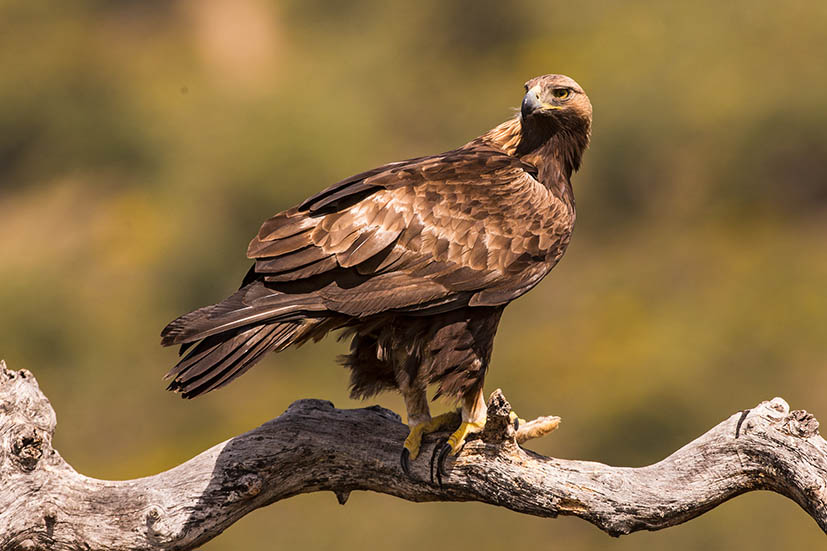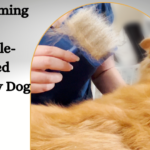
[ad_1]
The Environment Secretary has set out plans to revive nature and “construct again greener” after the pandemic. The Secretary of State, George Eustice, made the speech at an internet occasion hosted by The Wildlife Trusts throughout which the general public might put questions. The occasion could be considered right here.
Much focus was given to plans for tree planting, species reintroduction and peatland restoration in England, together with a ban on peat gross sales topic to a public session. While it’s extensively acknowledged that there’s a massive alternative for a ‘inexperienced restoration’ from Covid19, The Wildlife Trusts worry that there’s a actual hazard of ‘constructing again’ simply as earlier than – for instance by investing in damaging new highway constructing and harmful developments equivalent to HS2 rail and Sizewell C nuclear energy station, relatively than investing in nature on land and at sea on the size that’s urgently wanted.
Craig Bennett, chief government of The Wildlife Trusts, says:
“This is a vital step at the moment on a protracted journey for nature’s restoration. It’s thrilling to listen to discuss of reintroducing wildlife equivalent to wildcat and golden eagle however the success of such tasks totally is dependent upon making an enormous quantity extra space obtainable for nature. What we’d like is all nature to be ample as soon as extra – buzzing and buzzing throughout us – and we hope {that a} new legally-binding goal to realize this can step up motion throughout Government. So, whereas seeds of hope had been sown at the moment, root and department change remains to be wanted on a mammoth scale.
“The UK is among the most nature-depleted nations on the planet and we obtained into this mess as a result of pure locations have shrunk to tiny, fragmented pockets of land, usually too removed from communities for folks to learn from contact with nature. Much of our land and sea is degraded and unable to retailer carbon within the portions wanted to assist deal with local weather change.

Golden Eagle, copyright Ron Marshall, from the surfbirds galleries
“Vast restoration tasks want funding by Government to assist it attain their declared ambition of 30% of land and sea for nature by 2030. Doing so will assist wildlife combat again and allow repaired habitats to retailer carbon as soon as extra. At the second, solely 10% of our land is protected for nature and solely half of that is in a superb state.”
The Wildlife Trusts are calling for pressing implementation of:
- A Nature Recovery Network to be on the coronary heart of the longer term planning system to allow new nature locations to be rigorously mapped out, joined up and put the place they’ll work greatest for nature and folks. A wholesome and related pure world will be sure that species have sufficient area to outlive, thrive and transfer if they should, in response to local weather change.
- A future planning system that doesn’t jeopardise nature. Defra ought to maintain the Ministry of Housing, Communities and Local Government to account in order that sooner planning doesn’t imply poorer safety for nature. The planning system should assist tackle the wildlife disaster with a brand new Wildbelt designation to guard land in restoration for nature. Furthermore, there is a gigantic menace to marine life from the large enlargement of offshore wind improvement and we should not neglect the function that our seas play in mitigating local weather change, locking away carbon. Strategic planning at sea should guarantee inexperienced vitality doesn’t improve the menace to nature.
- Highly Protected Marine Areas throughout at the very least 30% of our seas’ protected community. It is disappointing that in a speech which highlights plans to guard and restore nature, and deal with the local weather and biodiversity crises, that no point out is given to the marine setting. We want to revive seagrass and saltmarsh for wildlife and carbon storage as a lot as we do bushes and peat.
- A ban on promoting peat in compost earlier than the UK hosts the worldwide local weather convention COP26 in Glasgow in November this 12 months. The deliberate session should additionally set an early date for the phase-out of peat use altogether.
- A tenfold improve in peatland restoration, an finish to all upland peat burning and higher controls to cease drainage of peat soils for farming. Peatlands are one of many UK’s most valuable wildlife habitats, able to storing big quantities of carbon, however over 80% of them are in poor situation. It is disappointing that the Government’s preliminary goal is barely to revive 35,000 hectares of them; its personal advisors have estimated that ten occasions that – 300,000 hectares – must be repaired in England.
- A Tree Action Plan which firmly places habitat creation and nature safety at its coronary heart, creating pure, joined-up woods which might be good for wildlife and accessible to folks. Important wildflower meadows, peatlands and species-rich grasslands shouldn’t be broken by tree planting. A transfer in the direction of pure regeneration, the place woods naturally grows from fallen seeds, must be a precedence as a result of they’re higher for wildlife.
Craig Bennett continues:
“Today we face a twin nature and local weather emergency – these crises are totally interlinked and one can’t be tackled with out addressing the opposite. The time for procrastination is over and larger urgency is required on all fronts. The UK hosts the worldwide local weather convention COP26 in Glasgow in November this 12 months and velocity is important: now could be the time to speed up nature’s restoration – for wildlife, for folks and for the local weather.”
Source www.surfbirds.com






